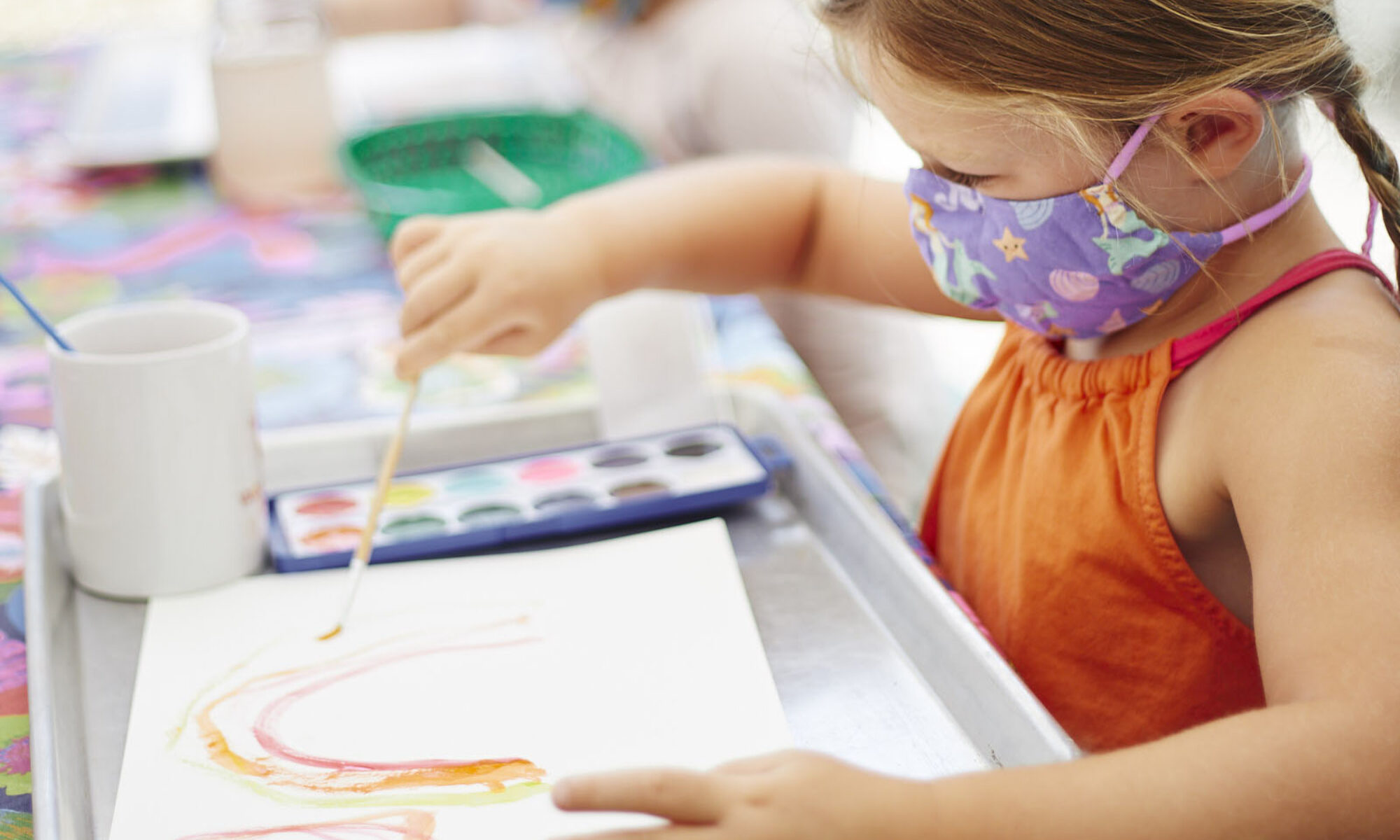This is a year of great growth and a striving for independence. The Preschool values this new stage by supporting values this new stage by supporting children as they come to school one day a week on their own, and encouraging them to branch out and explore more independently.
In contrast to the Toddler Class, parents work and remain in a specific learning center within the classroom. As the children begin to increase their interaction with their peers, parents and teachers are there to model appropriate conflict-resolution and offer support. The Preschool teacher continues to provide appropriate curriculum, sharing music and stories, and building on concepts and ideas previously established in the Toddler Class.
A typical day will include:
- Greetings: It is important to make the children feel welcome to the classroom, and to make contact with each child as he or she enters. This is an important time to reassure children who are attending school without their parent, and to help families with separation issues. Children are encouraged to find their own name badges and cubbies.
- Discovery Time: The children explore all the different areas of the classroom, and show increasing independence as they adjust to allow their parents to work in a specific area rather than follow them around.The children show increased interest in playing with each other, although at this stage is is usually in parallel play. The children still move quickly between activities but now are becoming more able to focus for slightly longer periods of time Theme oriented projects continue to be used in the classroom, the focus being on process rather than product.
- Clean-up: Children are encouraged to participate in the clean-up process. As the children are familiar with their routine, they become more comfortable in their surroundings and are very capable of putting things away, with adult supervision.
- Outside: Weather permitting, it is great to let the kids have outside exploratory time too – time to run, jump, play in the sand box and climb on the climber.
- Snack: Learning about cleanliness is part of our snack routine, as all children and adults wash their hands before sitting down to snack. Children are learning social skills, from sitting down to eat with others, to cleaning their place before they leave the table. Snacks are served family style, allowing the children the opportunity to make choices and practice serving themselves.
- Story Circle: As the children become more able to sit and pay attention for longer periods of time, a story is read, with the children encouraged to participate with the teacher.
- Music: Music is a wonderful time for children to explore rhythm and tunes, as well as dance and movement. Instruments are often incorporated, or colored scarves to dance with, and parents join in as much as the children.
- Goodbye Circle: As the session comes to a close, children sit on their own, or in an adult’s lap, for songs, finger-play, and games, before everyone sings a goodbye song.
Parent Education
We’ve all heard it before; “the terrible twos” is a phrase that is recognized and feared by most parents. Yet once a parent understands the reason behind the behavior, parenting a two-year-old can become much more manageable. As children move into their second year, they begin to develop a more refined sense of self-awareness, and with this comes a strong desire for independence. Many call this the “first adolescence”. Your child’s need to separate from you brings about many typical two-year-old behaviors including tantrums, constant movement and exploring, and a strong need to push limits. Children might be uncooperative, negative, impatient, or extremely curious, and many are easily frustrated. It would be too much to expect them to share, and many are quick to demonstrate the rule of “mine” with a physical outburst.
During this time, your greatest tool can be learning about child development and different parenting techniques. The VMCP program is unique in this aspect. To enhance what you already know, we have Parent Ed meetings and classroom lab time that can help you build upon your knowledge, and give you plenty of opportunity to practice new skills. In both the classroom and at the monthly Parent Ed meetings, we focus on finding and applying age-appropriate strategies that truly work for the long-term benefit of your child. We analyze why certain behaviors occur and why they have such a profound impact on us as parents.
Having responded appropriately to two year-old behavior strengthens your relationship with your child and enables you to be successful with more significant parenting issues later on.
